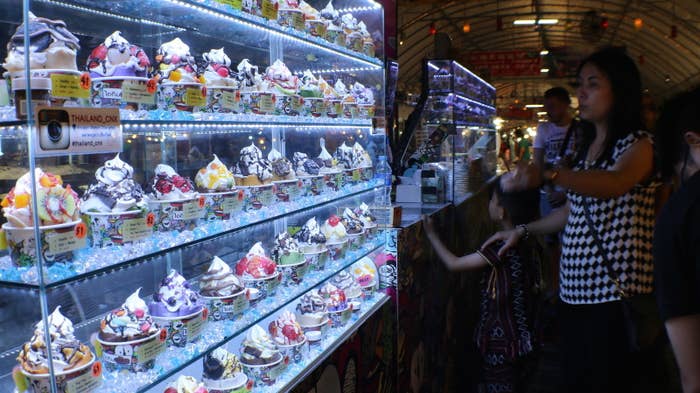“Disgusting. I Don’t Even Want To Eat The Food Now Since I Know Those Two Black Men Prepared It."
During my trip I had to accept that there is anti-blackness in Asian communities. The Hmong community was not omitted from this observation. It is so prevalent and such a norm I do not think people realize how racist and hurtful their comments are. Hmong people who make comments like these are rarely malicious people. They are our family, friends, neighbors, and acquaintances. To them I usually reply, “I don’t think you would make those comments if a black person were here.” Their retort is always along the lines of, “Why do you care? You are so easily offended. Just be quiet. Just stop talking.” This response baffles me. Although the Hmong and black experience in the United States are different, we are both marginal and minority members, and throughout history have faced the oppressive muting of our voices over and over again. As a child there were little records of Hmong people. When something was written about us the pen was never in our hand. We had little to no power to narrate and interpret the wars from our perspective. As I become older, I see the Hmong community (such as Hmong organizations, Hmong writers, and Hmong professors) encouraging us to use our voices to tell our stories. To remind the future generations of how and why we came to America. We know that much of this history is tragic, traumatic, and unfortunate. Nonetheless they are our stories to hold, share, and weave into the history of our country. And when you are able to use your voice in social, economic, and political platforms, you feel like an active participant and member in society. You have the power to interpret and narrate, to agree and disagree. You are able to express your thoughts and place them at the proverbial table. We have worked tirelessly to build our voice and stories in America; why disregard the voice and stories of our black community? Like the security guards in Vietnam who said “Hmong women are not pretty” or the others who said Hmong people are “too stupid to know how to travel” and that “Hmong people are lazy”…we are no different when I have heard Hmong people say: “Black men are unattractive.” “Black women aren’t for serious dating.” “They’re pretty/smart for a black person.” “How to be the worst nyab? Bring home a black guy.” “Black people are bad.” “Pepper spray doesn’t work on black people.” “I just don’t trust black people.” So to answer the questions I am mostly asked after I confront these kind of comments... I care because the black community is part of my larger community. I am offended because when we use our platform to ridicule, ignore, and silence our black brothers and sisters, we are disregarding their humanity, just like how others have done to us during the war. I cannot always be quiet. I must call what I have seen in our community its true name: Anti-blackness. So I owe it to you and our country to reach out and connect; to empathize and respect; to use my voice and challenge these narratives and stereotypes. For when I do, I help define and reaffirm which voices are valued and included in our society; at the least, it is just the right thing to do.
1.

Become a Community Contributor.

